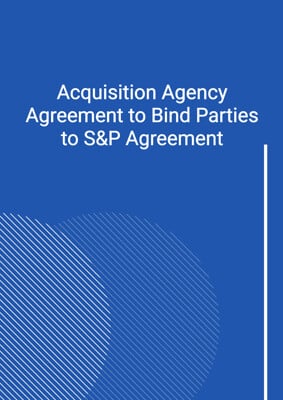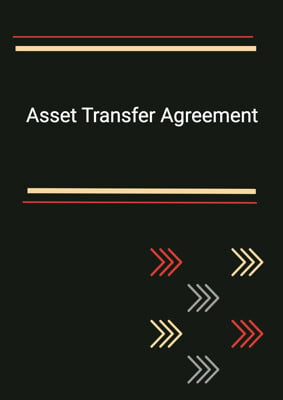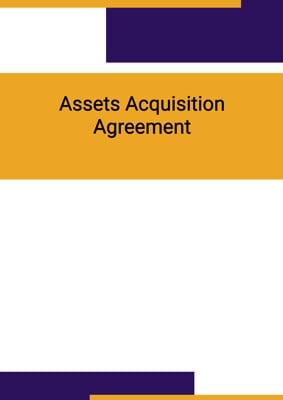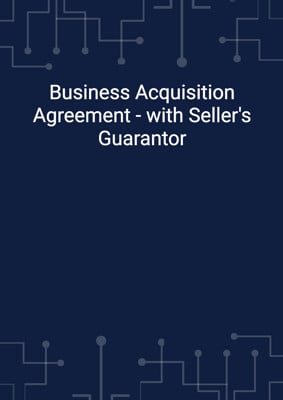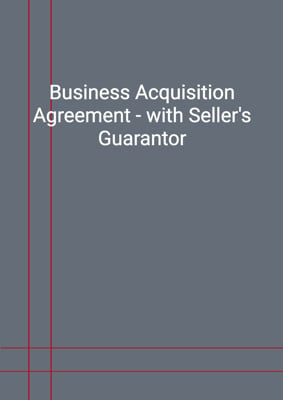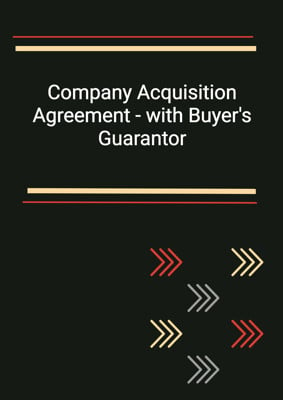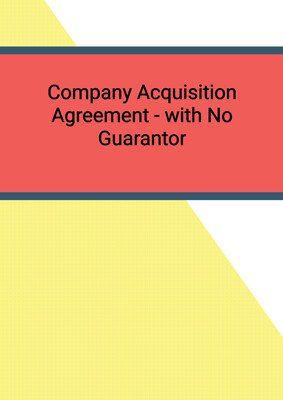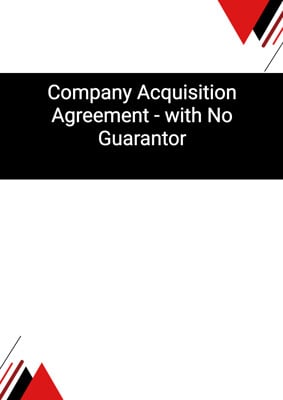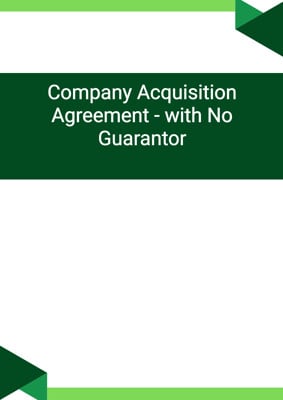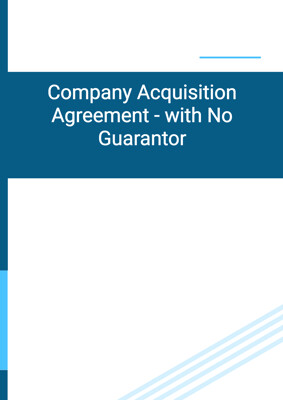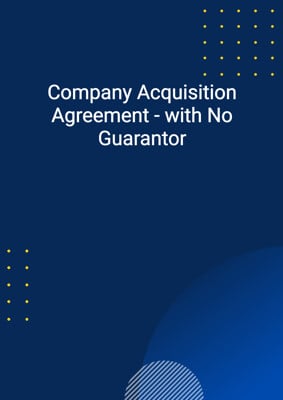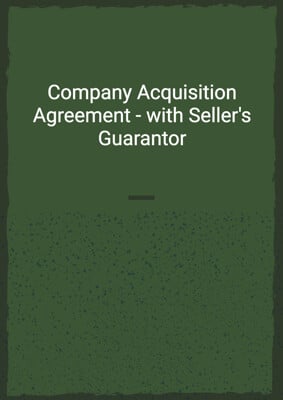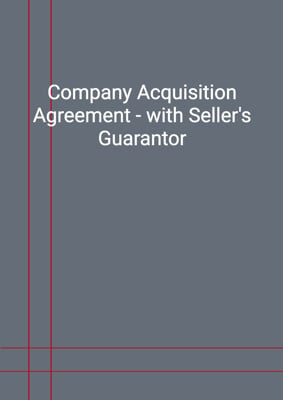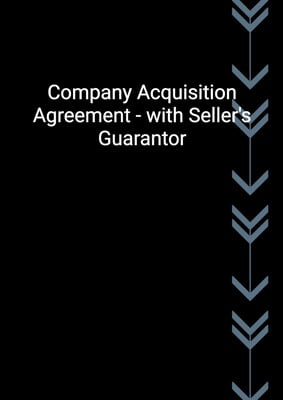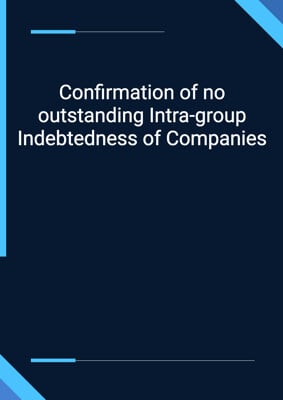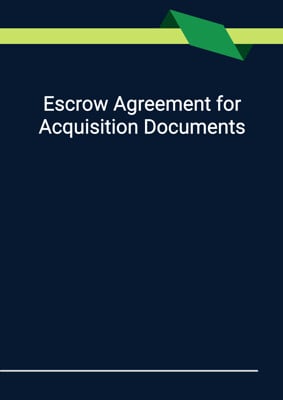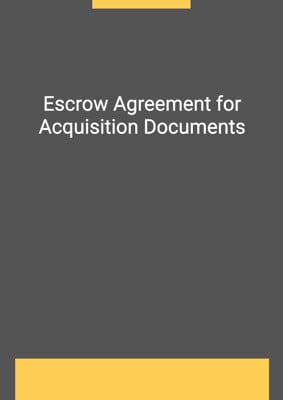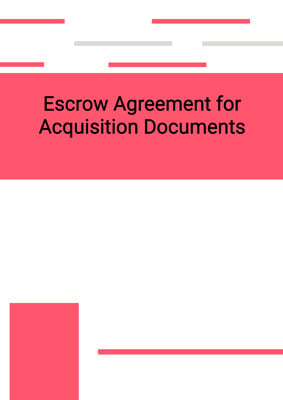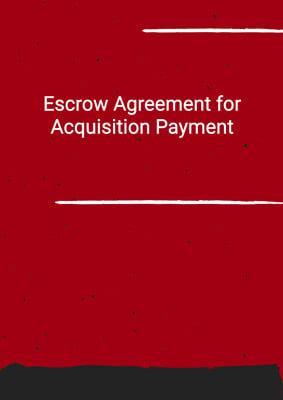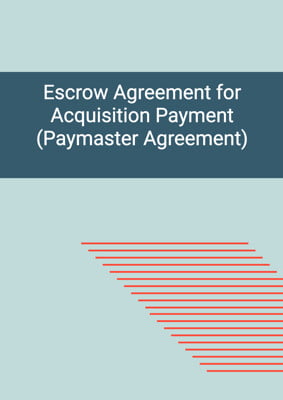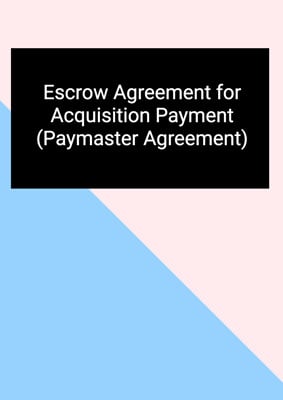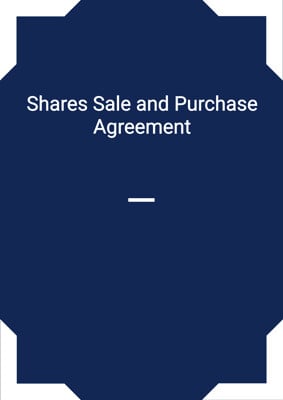
Company Acquisition Agreement - with Buyer's Guarantor
Seller Form - 1 Seller
A company acquisition agreement between a Buyer and a Seller with the Buyer's parent guaranteeing the obligations. The Seller's warranties are included in another template. This agreement is drafted in favour of the Seller.
How to Tailor the Document for Your Need?
01
Create Document
Fill in the details of the parties. You can click the "Fill with Member’s Information" button to complete it with information saved to your account.
02
Fill Information
Please fill in any additional information by following the step-by-step guide on the left hand side of the preview document and click the "Next" button.
03
Get Document
When you are done, click the "Get Document" button and you can download the document in Word or PDF format.
04
Review Document
Please get all parties to review the document carefully and make any final modifications to ensure that the details are correct before signing the document.
Document Preview
Document Description
The Company Acquisition Agreement - with Buyer's Guarantor is a legal document that outlines the terms and conditions of the acquisition of a company by a buyer, with the guarantee of a third party. The document begins by stating the parties involved in the agreement, including the seller, the guarantor, and the buyer. It highlights the importance of the agreement by emphasizing that the seller is the sole legal and beneficial owner of the share capital of the company, and that the buyer has agreed to purchase all of the issued share capital of the company. The guarantor has also agreed to guarantee the performance of the buyer's obligations under the agreement.
The document is divided into several sections, each addressing different aspects of the acquisition. The first section is the interpretation section, which defines the terms used in the agreement. The second section deals with the sale of the shares and the price. It specifies the number of shares to be sold, the consideration for the shares, and the payment terms. The third section outlines the conditions to completion, including the passing of a resolution by the shareholders of the buyer and the delivery of written consents from certain persons. The fourth section covers pre-completion undertakings, which include allowing the buyer's representatives access to the company's books and records, conducting the business in the usual course, and preserving and protecting the business assets.
The fifth section is about completion, which is the finalization of the sale and purchase of the shares. It specifies the documents to be delivered by the seller to the buyer, such as share certificates and transfer documents. The sixth section deals with completion accounts, which are the financial statements prepared after completion to determine the final purchase price. The seventh section covers post-completion undertakings, including the repayment of any outstanding intra-group indebtedness and the release of any connected guarantees. The eighth section contains warranties given by the buyer to the seller, and the ninth section contains warranties given by the seller to the buyer. The tenth section sets out the limitations on claims, including the time limits for making a claim and the maximum liability of the seller.
The eleventh section gives the seller the right to terminate the agreement in certain circumstances. The twelfth section deals with withholding tax and grossing up, ensuring that the buyer pays the full amount due under the agreement. The thirteenth section states that the agreement and the disclosure letter set out the entire agreement between the parties. The fourteenth section allows for variations to the agreement, but specifies that no variation shall constitute a general waiver of any provisions of the agreement. The fifteenth section deals with assignment of rights under the agreement, allowing the buyer to assign its rights to other members of its group. The sixteenth section covers announcements and requires the parties to obtain each other's approval before making any announcements or disclosures. The seventeenth section deals with costs, stating that each party shall bear its own costs incurred in connection with the agreement. The eighteenth section contains a severability clause, stating that if any provision of the agreement is held to be invalid or unenforceable, it shall be deemed not to be included in the agreement. The nineteenth section states that counterparts of the agreement may be executed, and the twentieth section requires the parties to perform all further acts and execute all further documents necessary to implement the agreement. The twenty-first section contains a guarantee from the guarantor, ensuring the performance of the buyer's obligations under the agreement. The twenty-second section states that any failure or delay by the buyer in exercising its rights or remedies under the agreement shall not impair such rights or remedies. The twenty-third section states that the agreement does not confer any rights on third parties. The twenty-fourth section specifies that the agreement is governed by the laws of the jurisdiction and that any disputes shall be subject to the jurisdiction of the courts of that jurisdiction. The twenty-fifth section sets out the requirements for giving notices under the agreement, including the methods of service and the addresses of the parties. The twenty-sixth section states that time is of the essence in the agreement, meaning that the parties must comply with the specified times, dates, and periods.
How to use this document?
1. Review the agreement: Familiarize yourself with the terms and conditions of the Company Acquisition Agreement - with Buyer's Guarantor. Pay attention to the parties involved, the sale of shares, the price, the conditions to completion, and the warranties given by both the buyer and the seller.
2. Gather necessary information: Collect all relevant information, including the names and addresses of the parties involved, the number of shares to be sold, the consideration for the shares, and any specific accounting policies or methods to be followed in preparing the completion accounts.
3. Prepare necessary documents: Ensure that all required documents, such as share certificates, transfer documents, and completion accounts, are properly prepared and executed.
4. Comply with pre-completion undertakings: Ensure that the seller allows the buyer's representatives access to the company's books and records, conducts the business in the usual course, and preserves and protects the business assets until completion.
5. Finalize the sale and purchase: Complete the sale and purchase of the shares at the agreed-upon location and ensure that all conditions to completion have been fulfilled.
6. Prepare completion accounts: Prepare the completion accounts in accordance with the agreed accounting policies and procedures. Include all relevant financial information, such as the assets and liabilities of the company and its subsidiaries.
7. Fulfill post-completion undertakings: Ensure that any outstanding intra-group indebtedness is repaid and that any connected guarantees are released.
8. Monitor time limits for claims: Be aware of the time limits for making claims under the agreement and ensure that any claims are made within the specified timeframe.
9. Seek legal advice if necessary: If you have any questions or concerns about the agreement or its implementation, consult with a legal professional to ensure compliance and mitigate any potential risks.
10. Keep records: Maintain accurate records of all transactions and communications related to the agreement. This will help in case of any disputes or future reference.
Not the right document?
Don’t worry, we have thousands of documents for you to choose from:

